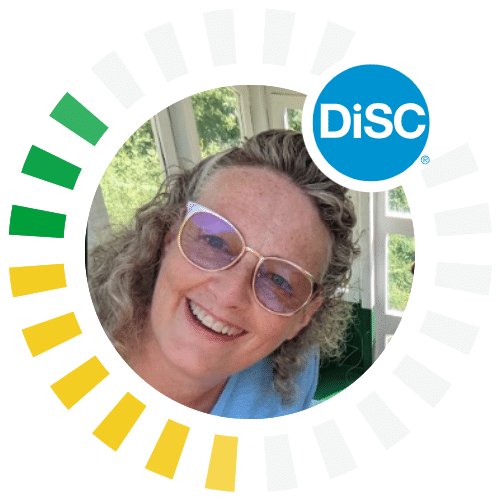30+ Team-Building Questions for After DiSC Training
Key Takeaways
- After a team-building session, it's important to keep the discussion going when the team is back in their day-to-day routine.
- Managers can add a discussion question to a team's regular meetings. These questions can build personal connections among the team or prompt status updates on action items from the training session.
- Using DiSC as a common language to discuss work styles and preferences helps build a cohesive team culture.
Once you offer an engaging team-building session, you want to keep that momentum going, but how? The team can answer and discuss these questions during their regularly scheduled meetings. You as the facilitator don’t even have to be there. These can be asked by a manager or any team member.
These questions can be answered quickly; another meeting can be called to address the issues further if needed. If unhealthy or disquieting conflict arises, the discussion can be postponed until you are called back in.
Before regularly scheduled meetings, ask each team member to answer one of the questions listed below. The leader or another member can select a question or repeat a question at each meeting.
This is a chance to practice what is learned during each Everything DiSC or Five Behaviors session. Facilitators might also want to ask the team to come up with questions for each day or week until their next session.
Some of these questions are meant to increase trust on the team, which always makes applying new learning easier. Others are offered for building team cohesion in general. A few are directly related to Everything DiSC styles.
You can likely think of some great questions tailored to your group. This list of team-building questions for after a training will get you started.
Team-building questions
- What’s one strength I (or each member) bring(s) to the team?
- What’s one accomplishment I’ve achieved since the last meeting? (It does not have to directly affect the team. It can be personal.)
- What’s one thing you’ve done for the team this month? Examples: started an assigned task, reflected about a personal attitude or trait, increased your capacity/ability/learning.
- What’s one hope you have for this team?
- How has the team been successful this year?
- What’s one thing our team could do better?
- What’s one suggestion you have for improving trust among team members?
- What’s a fear you have about this team, its goals, or commitments?
- What’s one thing you’re proud of right now?
- Can you describe a time when you felt frightened? (This can take up a lot of time, with lots of interesting stories.)
- What was your first job and what did you learn from it?
- What was your worst job?
- What activities help you de-stress during the workday?
- Other than your parents, who had the greatest positive impact on you? What did the person do? How did you feel about it?
- What are you most proud of professionally?
- What is a mistake you made professionally that you wish you had a do-over on?
- Can you share a mistake you made and how you responded and recovered?
- What’s a topic or issue we should confront but never seem to get around to, or perhaps actively avoid?
- What’s something you’ve been thinking about since the last Everything DiSC or Five Behaviors session?
- What’s one thing people might not expect from you, knowing your DiSC style?
- What’s one behavior you want help working on or practicing during the next month?
- What’s something about your DiSC style that you’d like to remind others of?
- What’s an example of how you considered someone’s DiSC style when communicating with them?
- Do you ever feel imposter syndrome? If so, what has contributed to that feeling? (Might include anxiety, chronic underrepresentation, uncredited work efforts, and microaggressions.) If you haven’t experienced imposter syndrome, say that, and consider what conditions allowed you to feel like you’ve always belonged.
- What’s been the most collaborative experience you’ve had in one of the channels we use as a team (email, Teams, virtual meetings, etc.)?
- What’s one thing you’d like to change or standardize in the way we communicate with each other?
- Does the content of this poster accurately reflect your own preferences during meetings?
DiSC® style-focused questions
Tip: Print and memorize these for improving ongoing communication with your teammates!
- Is this good advice for communicating with your style? Which style do you have the most difficult time communicating with? What can you do to make your communications more effective with that style?
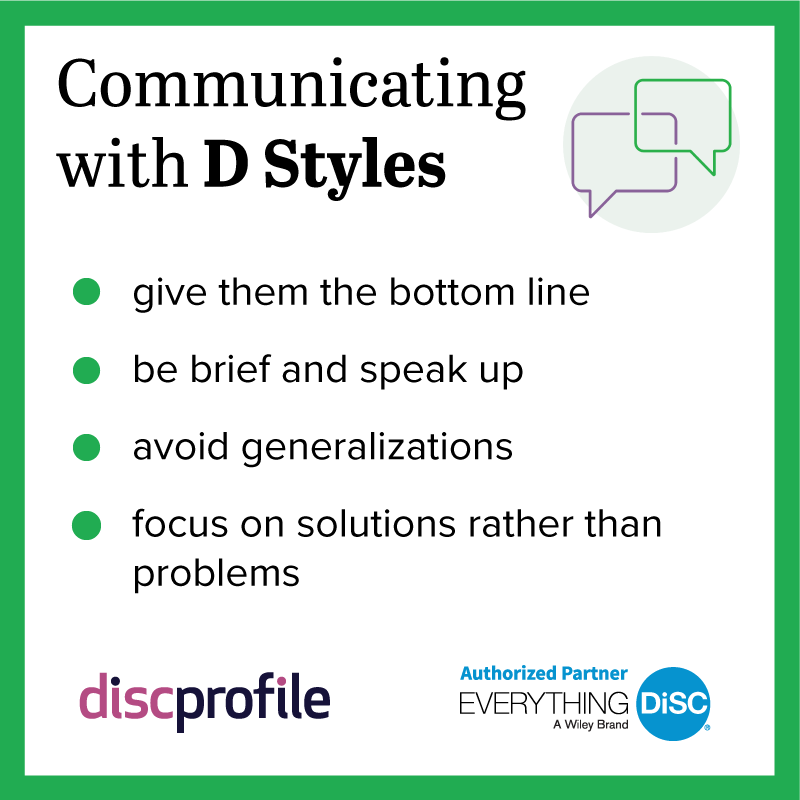
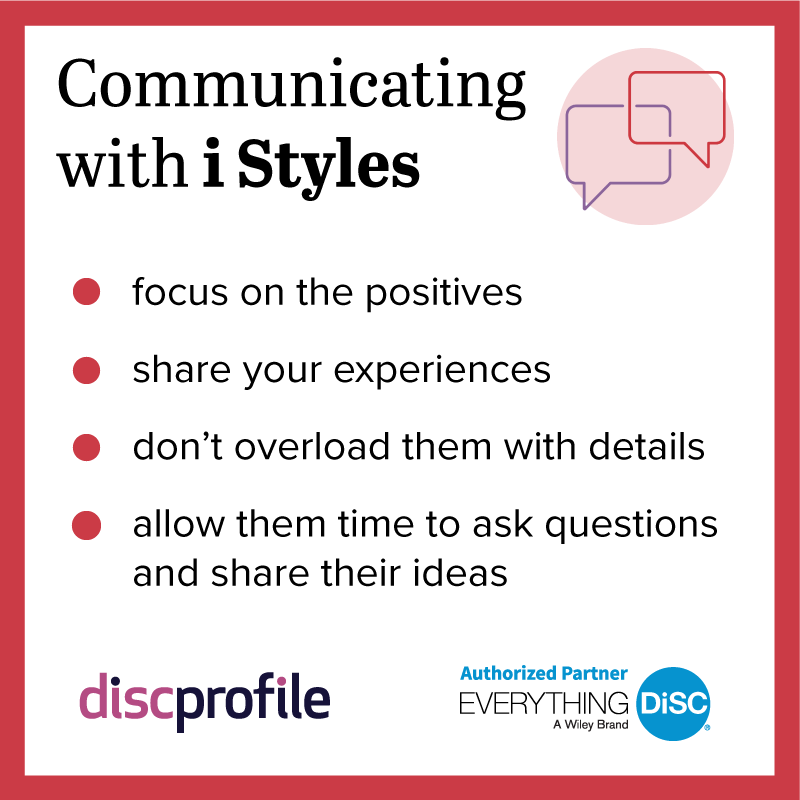
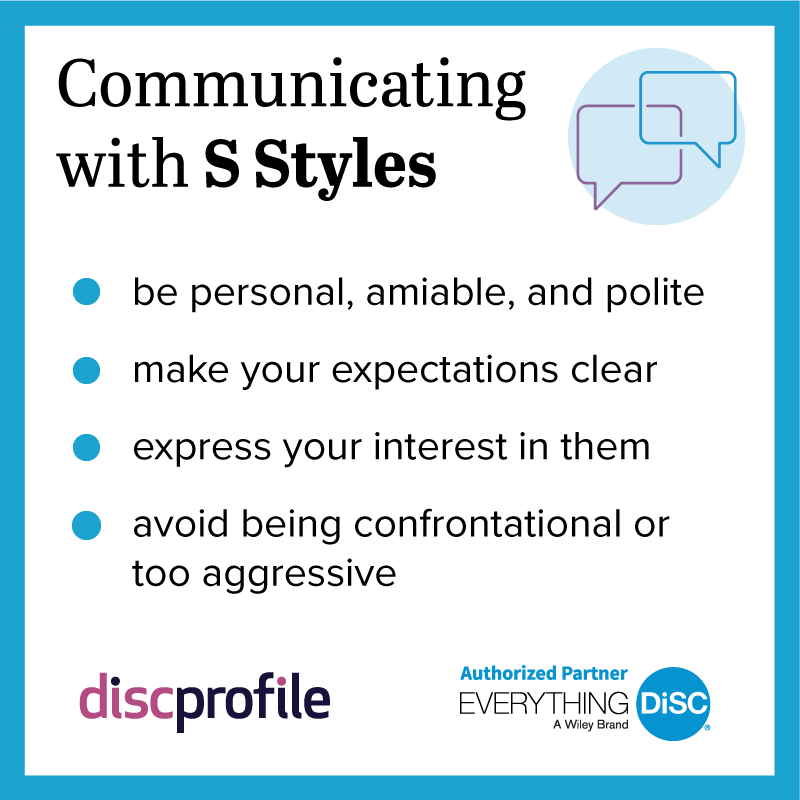
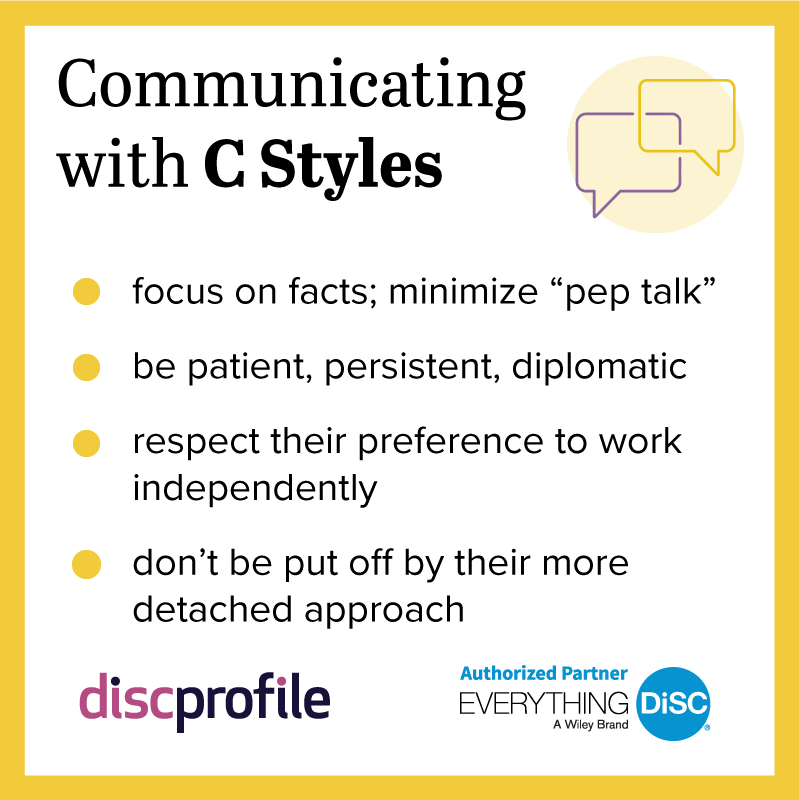
- Is this good advice for problem-solving with your style?
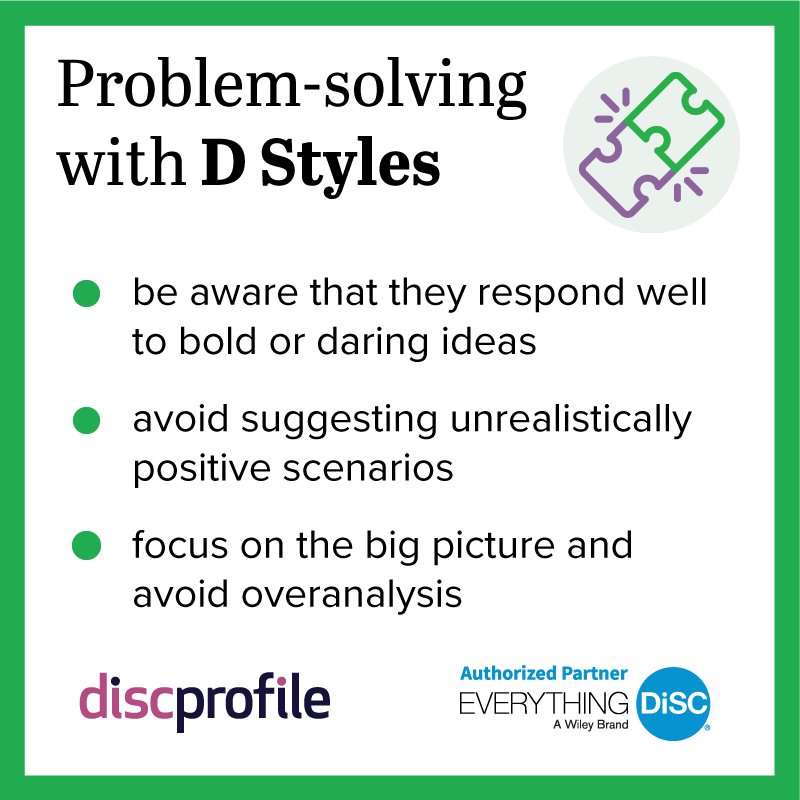
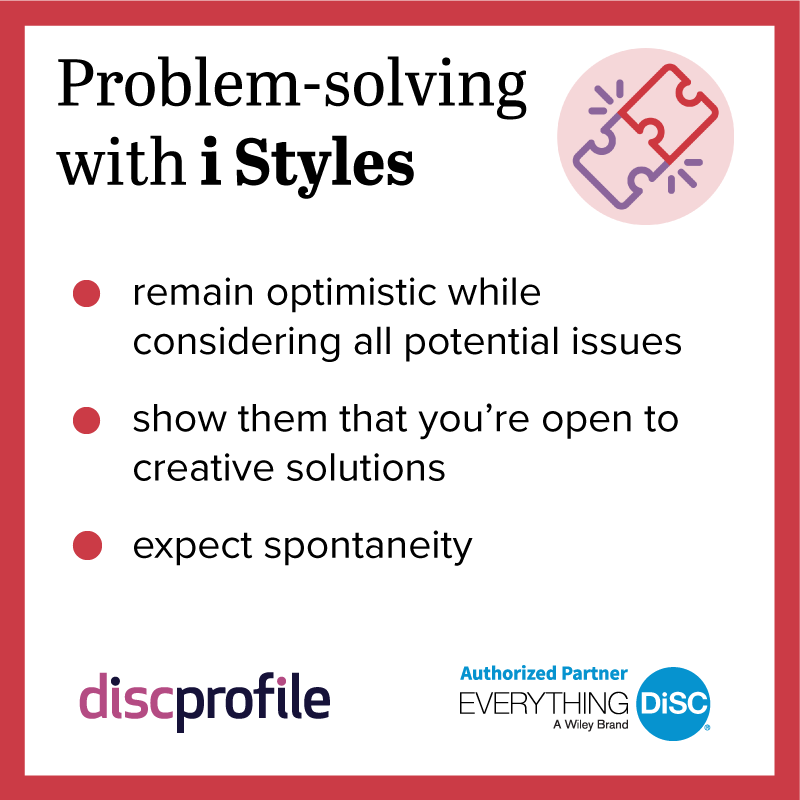
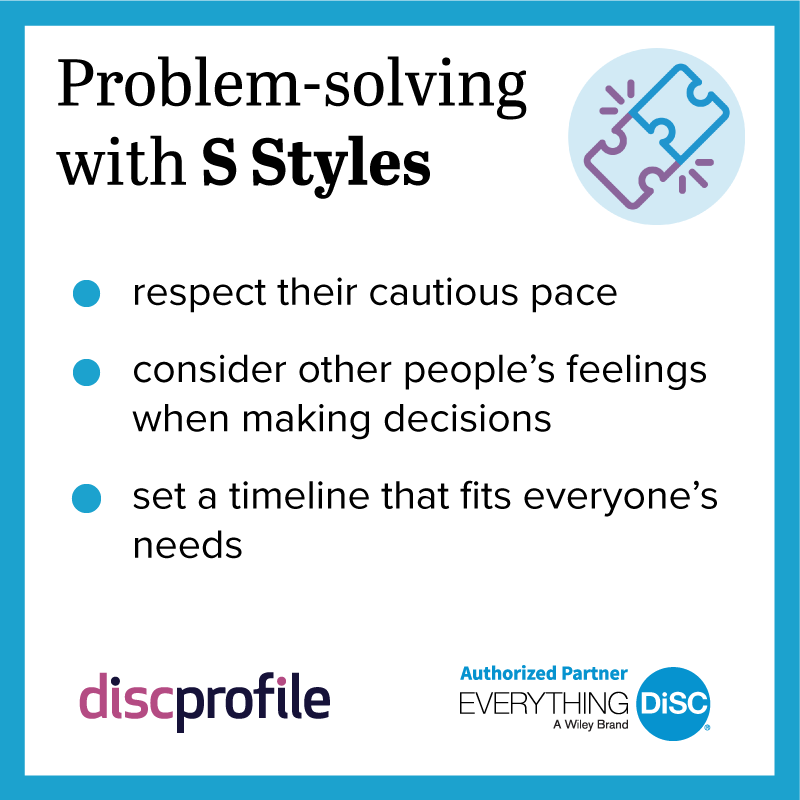
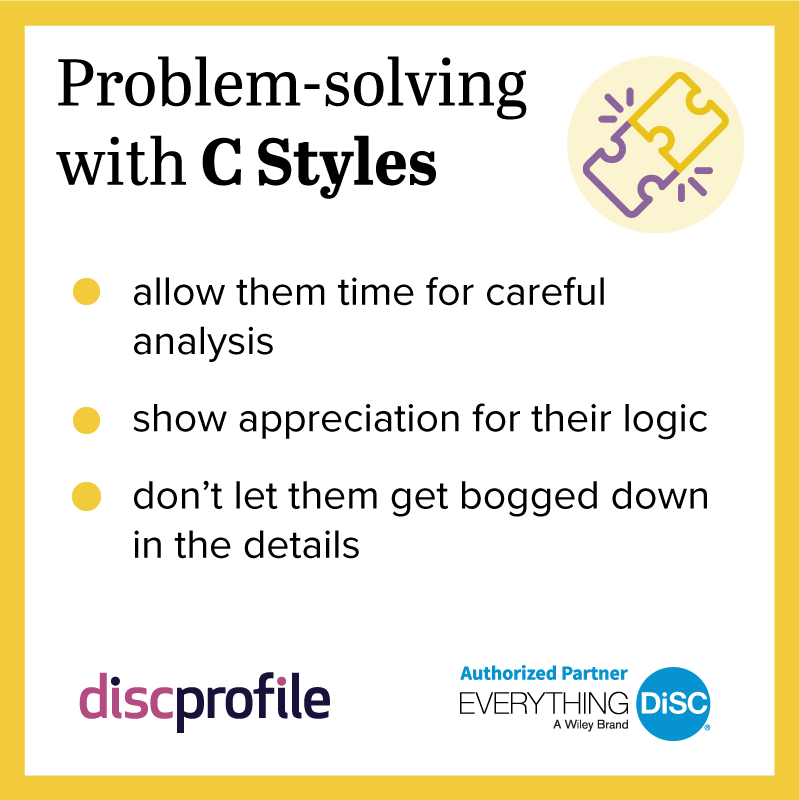
- Is this good advice for connecting with your style?
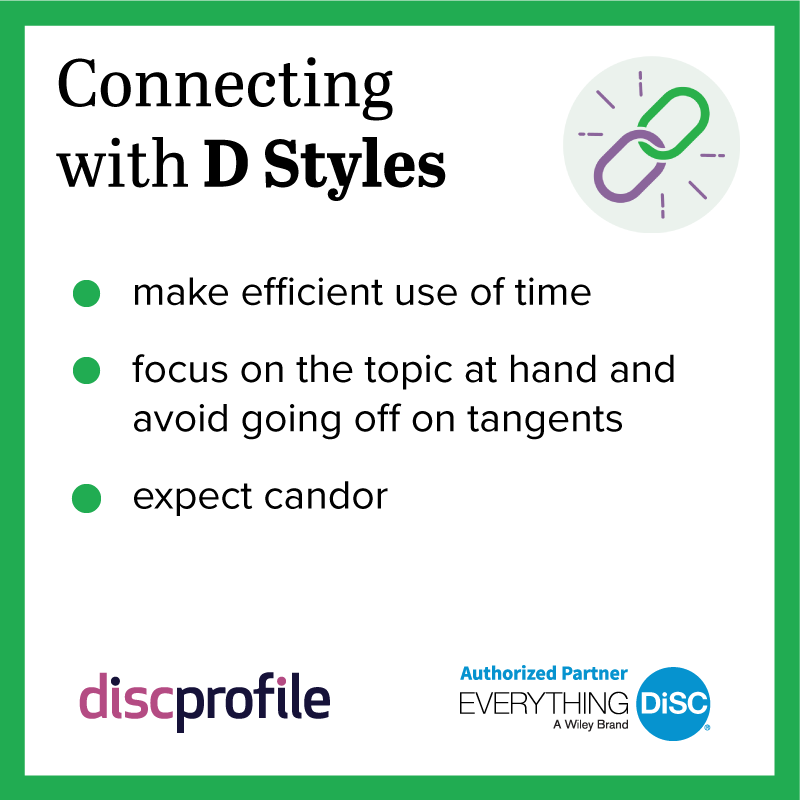
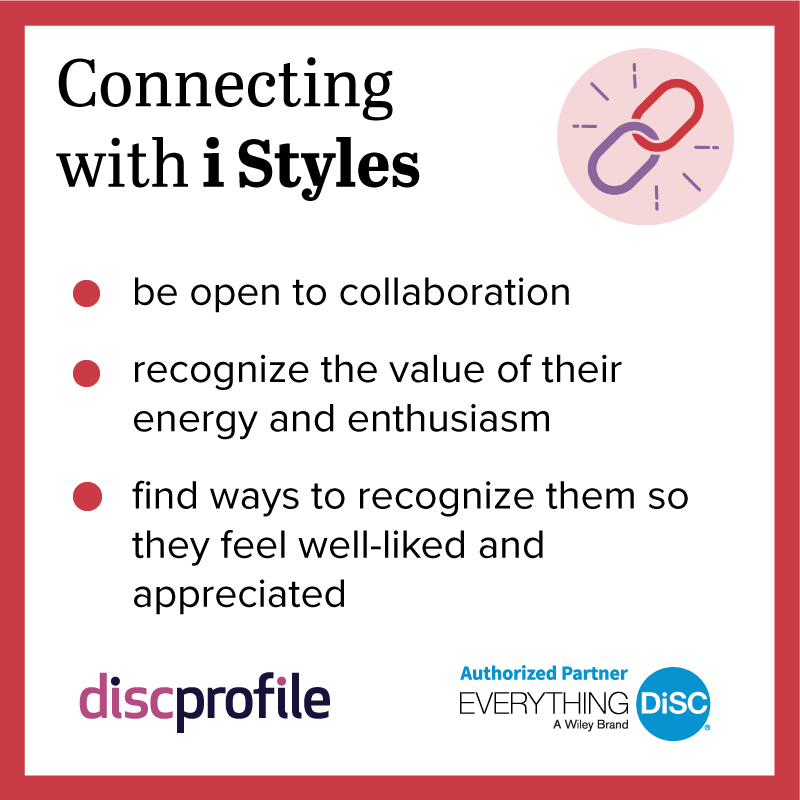
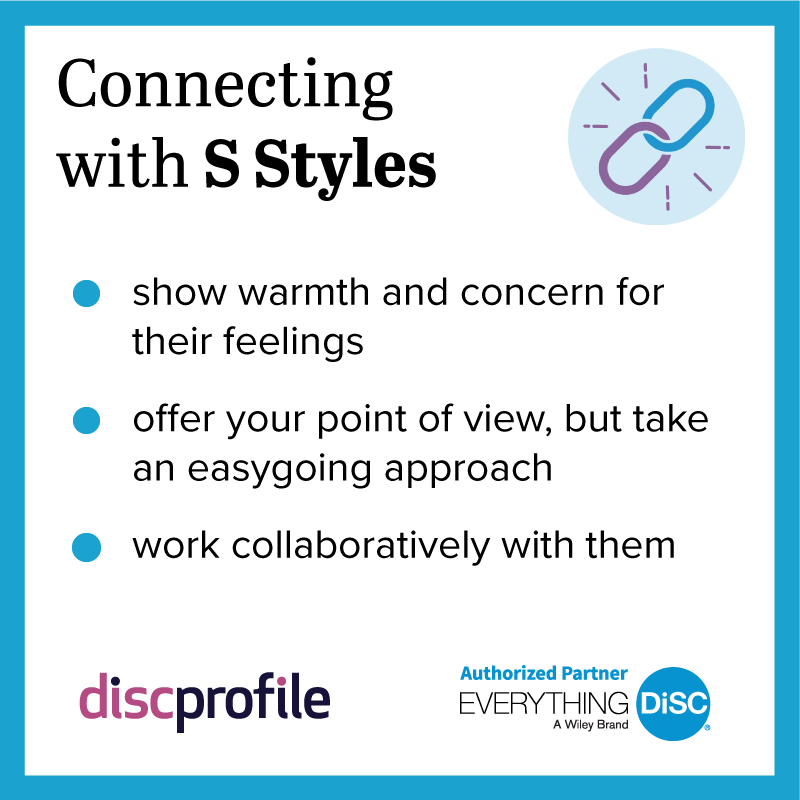
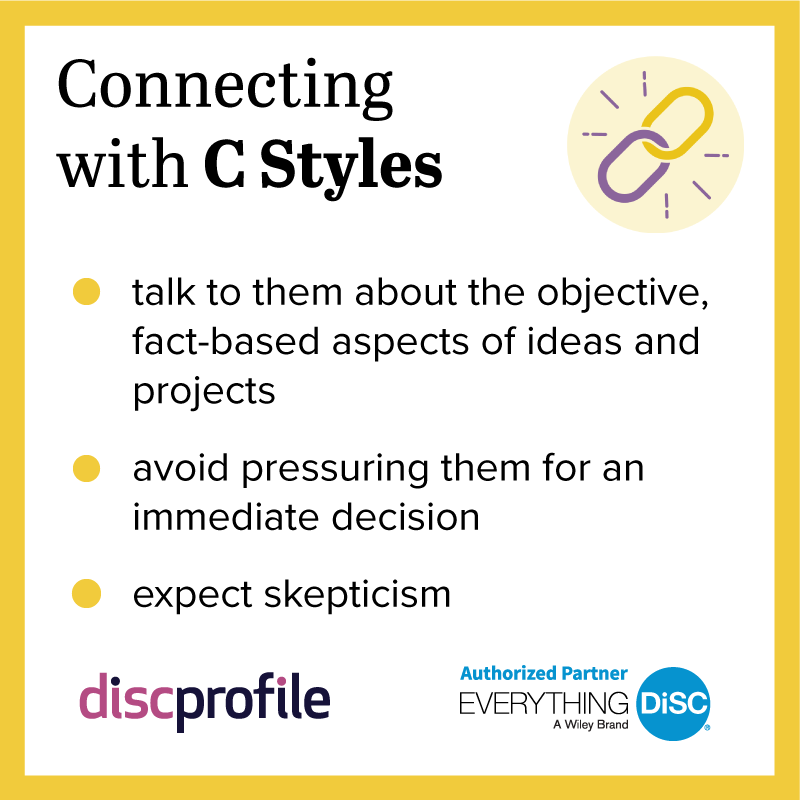
- Is this good advice for having productive conflict with your style? How could you adapt your style to better negotiate tensions with a person with another style? Have you tried any of the recommendations from these images? How did things go?
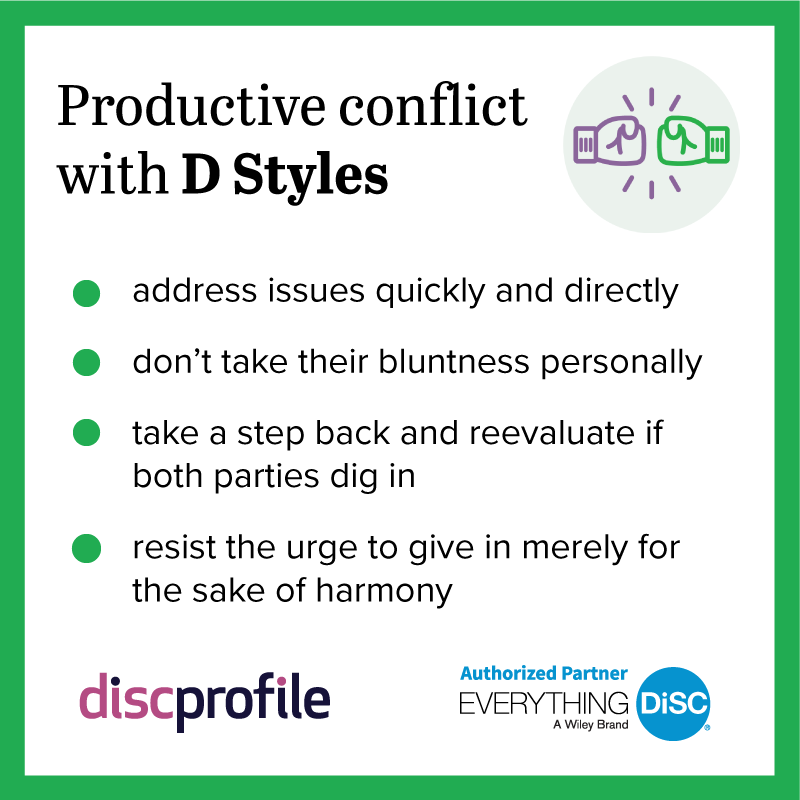
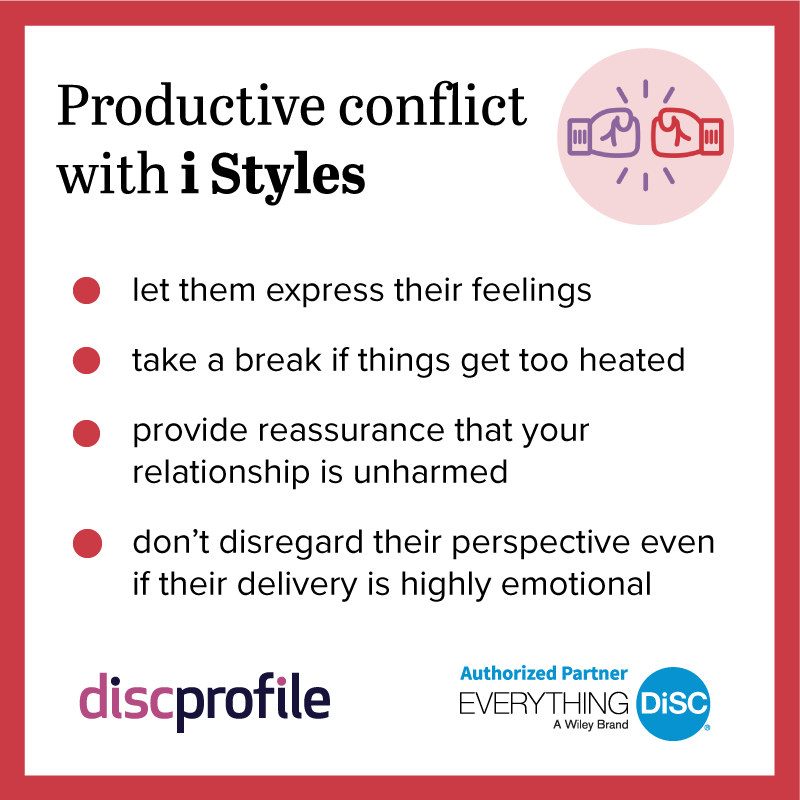
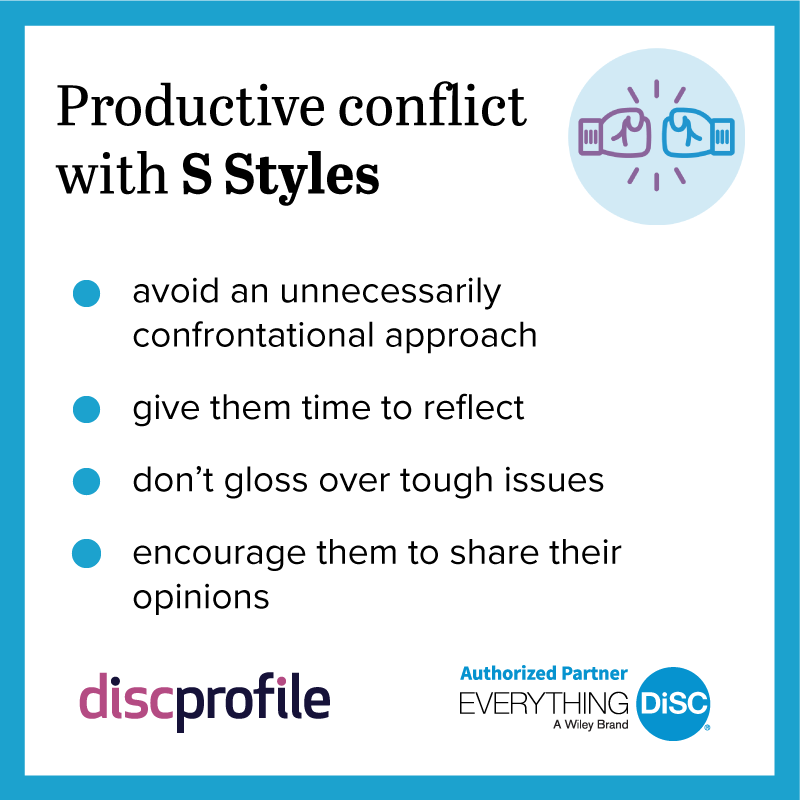
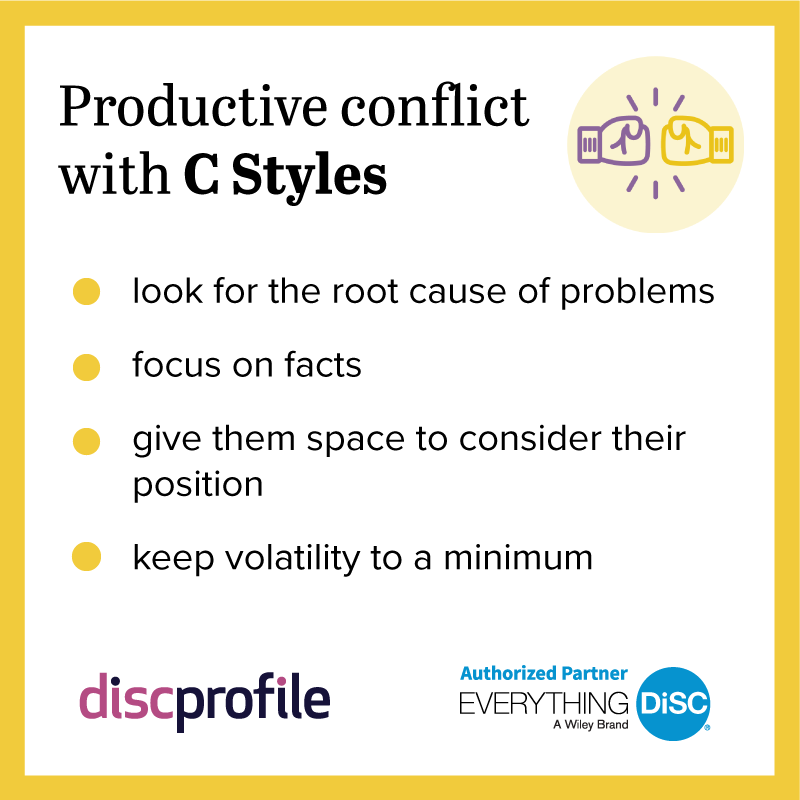
Posted 08/16/2018, Last Updated 01/29/2025


